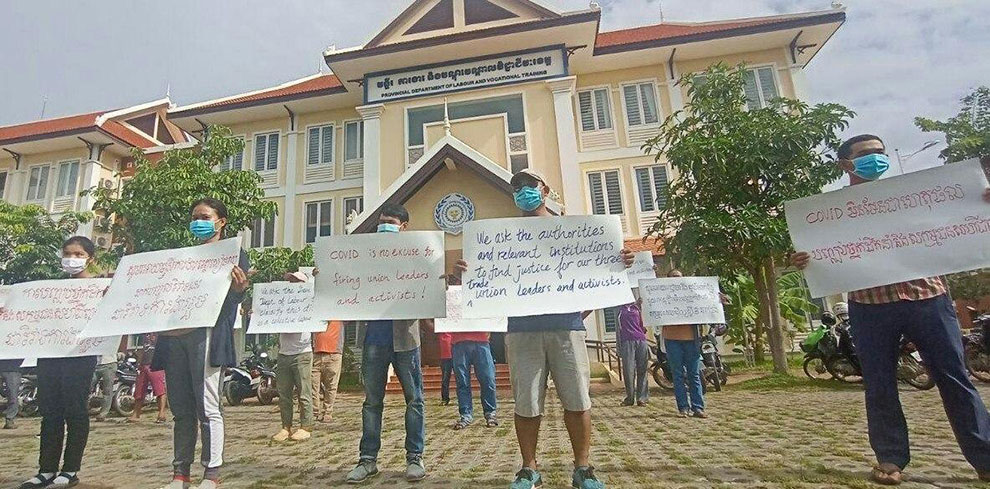Negotiations between Siem Reap’s Le Meridien Angkor Hotel and its employees over a labor dispute involving reduced wages and the termination of three union activists broke down on August 3 after the provincial labor department said it would address the two issues separately.
Touch Kosal, president of the Cambodia Tourism Workers’ Union Federation (CTWUF) said August 4 that the previous day, the provincial labor department had invited union, worker, and hotel representatives to negotiate the dispute, which stemmed from a pay reduction due to a loss of business amid the global Covid-19 pandemic.
On July 9 and 10, Le Meridien Angkor had terminated three activists of Le Meridien Angkor Trade Union, accusing them of inciting workers, after the three had collected thumbprints asking that their salaries be reduced by 20% instead of 35%, he said.
During the August 3 talks, the labor department had insisted that the case be dealt with as two separate disputes, he added.
“Local union leaders had decided that after they divided the case of the three union activists into an individual dispute, they would not agree to continue the negotiations,” Kosal said, adding that the union and worker representatives had walked out of the meeting in protest.
“We want the provincial labor department to solve the case as a collective dispute to allow the provincial labor department to send it to the Arbitration Council for a hearing,” he said.
Le Meridien Angkor Hotel remains open with a staff of 170. More than 80 of them protested outside the hotel twice in mid-July and again outside the labor department on August 3 calling for the three union activists to be reinstated, according to the union.
Chan Sokhom Chenda, director of the Siem Reap provincial labor department, said the dispute had already been divided into collective and individual disputes, but on August 3, the worker representatives had asked for it to be filed as one collective dispute.
“If they do not receive a solution, we will settle it based on the law,” Sokhom Chenda said, emphasizing that the provincial labor department can’t decide which party wins or loses but can only coordinate between the two.
“We want both parties to benefit the same,” Sokhom Chenda said.
He explained that hotel management views the union activists’ actions as a serious misstep, and would not allow the three to return to work. If no agreement is reached, he said the case will be sent to a higher level to resolve.
Kham Sreypheak, one of the terminated union activists who had worked at the hotel since 2005, said management had been dissatisfied with Le Meridien Angkor Trade Union on many occasions.
“Hotel leaders discriminated against our union activity because when our leaders or activists do anything, they regarded our activities as causing chaos,” Sreypheak said.
For example, she said the hotel had ended union leader Ly Linda’s contract in 2014 but allowed him to return to work after employees protested, and had done the same with activist Men Kimsour, who was permitted to return to work after the case was taken to the Arbitration Council.
Sreypheak added that workers had filed a complaint to the provincial labor department on July 22, and had held initial talks on July 23, when the department also insisted that the union member and wage issues be separated.
“We did not agree with the provincial labor department’s decision on July 23 the same as on August 3 because it is the same result,” Sreypheak said.
Sreypheak added that normal staff had a salary of between $110 to $140.
Ly Bun Hour, head of human resources at Le Meridien Angkor, said he was not involved in the case and declined to comment.
Siem Reap provincial tourism department director Ngov Sengkak said that only 64 of 230 hotels and 85 of 204 guesthouses in the province were still operating, and that their reopening would depend on when Covid-19 cases decline.
“We can not predict the future of the tourism sector in Siem Reap province because it is based on the Covid-19 pandemic,” Sengkak said. “So I cannot conclude when tourists will increase or when the tourism sector will be stable.”








